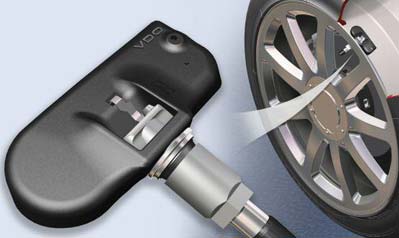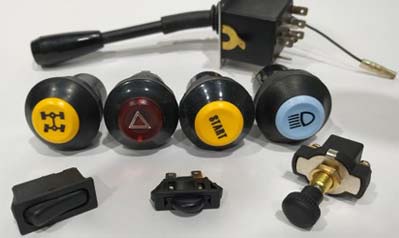Welcome to May Auto Parts Manufacturing & Supplying (MAPMS)
Welcome to May Auto Parts Manufacturing & Supplying (MAPMS)
What is the expansion valve for cars? The condition of the thermal expansion valve in the air conditioning system directly affects the performance of the entire car air conditioning system. Therefore, timely troubleshooting during the operation of the thermal expansion valve, as well as the appropriate and correct selection, is of great significance to the service life, refrigeration effect, and operating cost of the air conditioning system. Next, let's take a look at the working principle of car expansion valves.
The car ac expansion valve adjusts the flow rate of refrigerant according to the degree of superheat of the refrigerant at the outlet of the evaporator. The thermal expansion valve controls the flow of refrigerant into the evaporator by sensing the degree of superheat of the gaseous refrigerant at the outlet of the evaporator.
According to the different equilibrium methods, the thermal expansion valve is divided into external balance and internal balance types, which are composed of sensing mechanism, execution mechanism, adjustment mechanism, and valve body.
During operation, the temperature-sensing package fixed on the outlet pipeline of the evaporator senses the superheat temperature of the evaporator, causing pressure to build up inside the temperature-sensing package. The pressure is transmitted to the space above the diaphragm through a capillary tube. Under the action of pressure, the diaphragm transmits the signal to the needle (executing mechanism) through elastic deformation, thereby adjusting the opening degree of the valve and controlling the flow of refrigerant.
In general, dirt blockage occurs on the dryer filter, where impurities in the system are intercepted by the filter, causing dirty blockages. When this occurs, the system first shows an increase in return air temperature and superheat. After the failure becomes severe, the system stops working, and if impurities in the system are not removed, the system cannot be restarted.
Ice blockages generally occur at the throttle orifice of the expansion valve, which is the coldest and smallest area in the entire system. When the system stops cooling, the overall temperature of the system increases. As the temperature rises, the ice blockage gradually melts, and then the system resumes its cooling capacity. As the overall temperature of the system drops again, ice blockages may reappear.
The blockage failure of the thermal expansion valve in the refrigeration system often occurs, including dirty blockages and "ice blockages."
Dirty blockages: The main reason for dirty blockages is the presence of impurities in the system, such as welding slag, iron filings, and fibers.
Ice blockages: The reason for ice blockages is that there is too much moisture (humidity) in the system, and the ways to generate moisture include:
When the system was installed, there was not enough time for the system to be vacuumed. The welding process at the connection of the pipeline was not good enough, resulting in air leaks.
When charging the system with refrigerant, the air inside the connection hose was not blown out.
When supplementing lubricating oil for the system, air enters.
Popular Automotive Spare Parts
 The Location and Fault Analysis of the Evaporator of Automotive AC Evaporator
READ MORE >
The Location and Fault Analysis of the Evaporator of Automotive AC Evaporator
READ MORE >
 Common Faults and Troubleshooting Methods of Car Air Conditioner Compressors
READ MORE >
Common Faults and Troubleshooting Methods of Car Air Conditioner Compressors
READ MORE >
 Exploring Auto AC Condensers: Functions, Failures, and Replacement Costs
READ MORE >
Exploring Auto AC Condensers: Functions, Failures, and Replacement Costs
READ MORE >